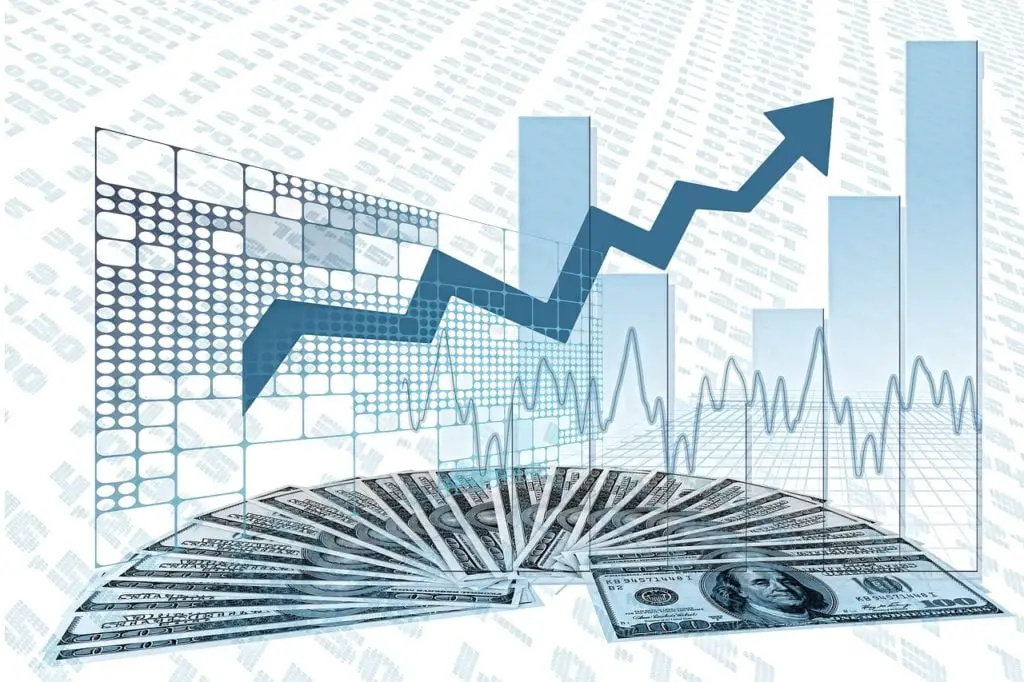When it comes to business valuation, there are a lot of different metrics that can be used; two of the most common business valuation metrics are enterprise value (EV) and market capitalization (market cap). We will look at the enterprise value vs market cap differences and similarities. Their importance in valuing a business, how to calculate each, and which one is more accurate?
What is market cap?
Market capitalization (“Market Cap”) is a metric for determining the value of a company using the number of shares outstanding multiplied by the share price.
What is enterprise value?
In simple terms, enterprise value is the theoretical takeover price. It is a measure of a company’s value that includes both its equity and debt. Enterprise value is often used as a more comprehensive alternative to market capitalization (market cap), which only captures the value of a company’s outstanding equity.

Enterprise value vs market cap calculation
When it comes to enterprise value vs market cap, they are calculated differently. Enterprise value includes debt and equity, while market cap only includes equity. Here is a breakdown of how to calculate each:
How do you calculate enterprise value?
1. Add up the market value of all outstanding shares
2. Add the total debt
3. Subtract any cash on hand
How do you calculate market cap?
There are a few ways to calculate market capitalization, but the most common method is to multiply the current share price by the number of outstanding shares. This gives you the market cap for the company as a whole. The market cap formula is = (current share price) X (the total number of shares).
Another way to think of market cap is that it’s the value of all the shares of a company that are traded on an exchange. So, if a company has 1 million shares outstanding and each share is worth $5, then the market cap is $5 million.
Enterprise value vs market cap differences
- One key difference between enterprise value and market cap is that enterprise value includes debt and other liabilities, while market cap only considers the value of shares outstanding. This means that enterprise value is a more comprehensive measure of a company’s worth.
- In addition, enterprise value is less impacted by changes in a company’s capital structure, such as through share buybacks or issuing new debt.
- While both metrics are used to measure a company’s size, they can give different results depending on a company’s capital structure. For example, a company with high debt levels will have a higher enterprise value than the market cap, while a company with little to no debt will have a lower enterprise value.
- Enterprise value is often used when comparing companies across different industries, while the market cap is more commonly used within an industry. When valuing a company, it is important to consider both metrics to get a complete picture of its worth.
- Another key difference is that the market cap is calculated using the current share price, while EV uses the theoretical value of all outstanding shares. This means that EV is less impacted by short-term fluctuations in the stock price.
- Enterprise value (EV) can be more difficult to calculate than market cap since you need to adjust for factors like outstanding shares and minority interests. For this reason, some investors prefer to use a market cap as a simpler way to measure a company’s size.
Are there any similarities between enterprise value and market cap?
- Enterprise value and market cap are financial metrics used to indicate if an asset is overvalued or undervalued by its current market price.
- Enterprise value and market cap can be affected by changes in the stock market and the overall economy.
- Both measures can be useful in assessing a company’s financial health and investment potential.
The use of enterprise value and market cap in business valuation
When valuing a company, it’s important to look at both market cap and enterprise value. Market cap is a good measure of how much the market values the equity of a company. Enterprise value is a good measure of the total value of a company.
Enterprise value vs market cap: which is the better indicator of whether a company is overvalued or undervalued?
Although both metrics gauge the overall size of a company, which is better? The better metric depends on your investment strategy. If you’re looking for a more comprehensive view of a company’s worth, enterprise value is the better metric. But if you’re just trying to get a quick sense of a stock’s price, market cap is probably all you need.
Why are these two measures used?
Enterprise value (EV) is a measure of a company’s total value, including both debt and equity. Market capitalization (market cap) is a measure of a company’s equity value. Both measures are used to value companies, but there are some important differences between the two.
EV takes into account a company’s debt, while market cap does not. This means that EV is a more comprehensive measure of a company’s worth. However, the market cap is the more commonly used metric when valuing companies. This is because it is easier to calculate and it is more closely aligned with the prices of stocks and other equity securities.
When choosing between market cap and enterprise value, it’s important to consider your investment goals and timeframe. If you’re looking for a more long-term investment, EV may be a better measure to use. But if you’re focused on the current market value of a company, the market cap may be more appropriate.
Is enterprise value usually higher than market cap?
Enterprise value is not always higher than market capitalization except the company is in debt. So, if a company has a lot of debt, its enterprise value will be higher than its market cap.
Conclusion
Enterprise value and market capitalization are two different ways of valuing a company. Enterprise value includes debt and equity, while market cap only includes equity. Both measures can be useful in certain situations. For example, if you want to compare companies with different capital structures, enterprise value is a better metric. If you’re interested in comparing companies with similar capital structures, the market cap is a better metric.
Last Updated on November 6, 2023 by Nansel Nanzip BongdapNansel is a serial entrepreneur and financial expert with 7+ years as a business analyst. He has a liking for marketing which he regards as an important part of business success.
He lives in Plateau State, Nigeria with his wife, Joyce, and daughter, Anael.
